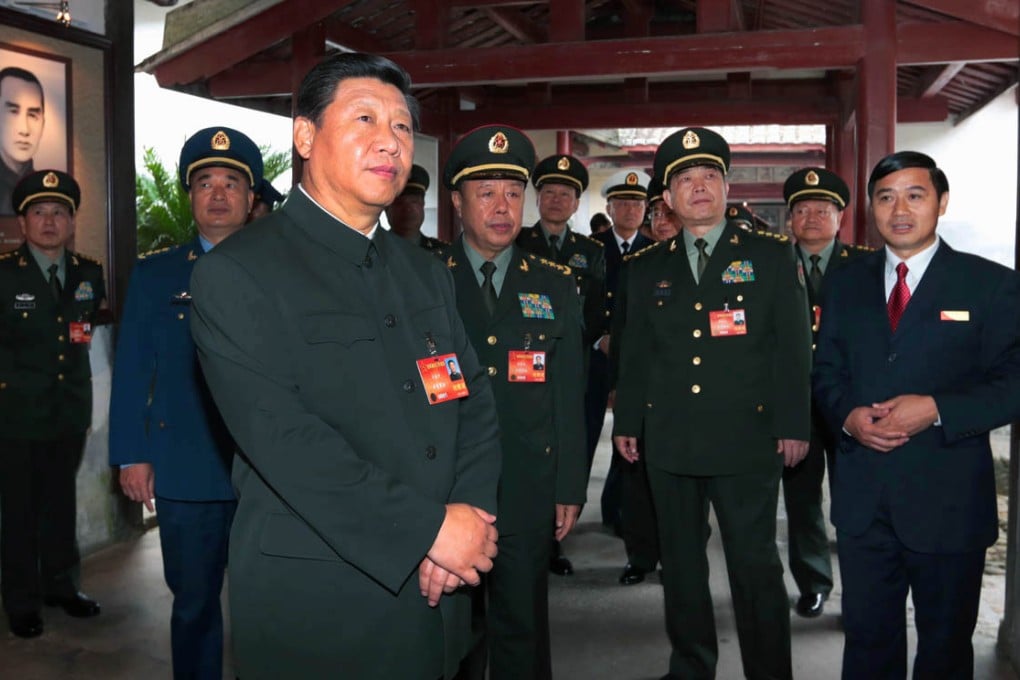For Xi Jinping's reforms to succeed, PLA must be loyal to Communist Party
Of all the quotations attributed to Mao Zedong, "political power grows out of the barrel of a gun" is one of the best remembered. The earliest record of it predates a historic congress that established the principle that the Communist Party leads the army.

Of all the quotations attributed to Mao Zedong, "political power grows out of the barrel of a gun" is one of the best remembered. The earliest record of it predates a historic congress in Gutian, Fujian, in 1929 that established the principle that the Communist Party leads the army. The words remain relevant to this day. Evidence of this was seen at a conference last week also held in Gutian - a venue believed to have been chosen by President Xi Jinping , in his capacity as Central Military Commission chairman, to link himself with the Mao era. In pledging allegiance to Xi, two of the PLA's top brass reaffirmed the rule that "the party controls the gun". This reflects Xi's effort to emulate Mao by consolidating the political and military legitimacy of his leadership, which faces resistance stiffened by fear and loathing of an anti-corruption campaign that has taken down senior PLA figures.
Rampant graft in the military is linked to calls from within and outside the PLA for its loyalty to be redirected from the party to the state, a reform dismissed by some top generals as a disaster for China. At the Gutian meeting, according to the PLA Daily, two CMC vice-chairmen, generals Fan Changlong and Xu Qiliang, said "enemy forces" were trying to move the PLA away from the party's leadership. The newspaper said the army should "rebuild its military spirit" in order to guard against "incorrect political ideas" such as making the PLA an instrument of the nation, instead of one devoted to the party.
Xi's summons to top generals to meet at a venue linked historically with loyalty to the party is part of his efforts to cleanse the PLA of the residual influence of disgraced former CMC vice-chairman Xu Caihou. Graft in the PLA may have predated Xu, who had a political rather than combat background, but he exploited weak party control to corrupt it from the lowest leadership ranks upwards with a system of patronage that yielded a fortune in bribes for promotions.
Xu's supporters are now under investigation. This may enable Xi to promote his own followers. But he still faces an uphill task in neutralising Xu's legacy, instilling discipline and eradicating systemic graft from the PLA. Nothing less will suffice if loyalty to the party is to remain a respected pillar of communist rule. For the sake of Xi's authority in pursuing his wider reform agenda, it is to be hoped he prevails.